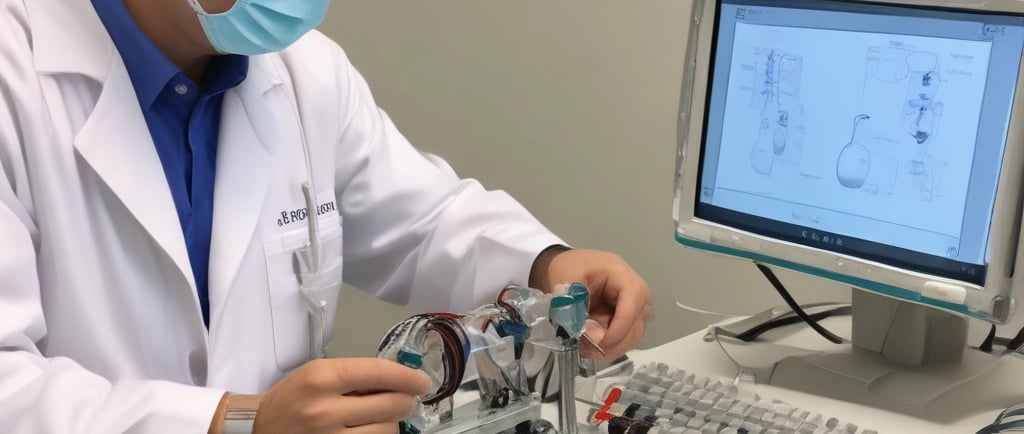Promising Medtech Startups to Watch in 2025
Explore the most promising medtech startups in 2025 that are revolutionizing healthcare innovation. Discover how these medical technology companies are addressing critical challenges in diagnostics, monitoring, and digital health with advancements in AI, robotics, and remote care.
4/14/20252 min read


The Most Promising MedTech Startups to Watch in 2025
As the global healthcare industry continues to embrace innovation, MedTech startups are at the forefront of solving some of the most pressing challenges in diagnostics, monitoring, surgical care, and digital health. In 2025, a new generation of medical technology companies is pushing the boundaries of AI, robotics, biosensors, and remote care. This article highlights the most promising MedTech startups poised to transform the industry in 2025.
1. Rune Labs (USA) – Neuroscience-Driven Precision Care
Rune Labs leverages brain data analytics to guide treatment decisions for neurological conditions like Parkinson’s disease. Their StrivePD software integrates with Apple Watch and deep brain stimulation devices to help patients and physicians manage symptoms with real-time insights.
Why it matters: Precision care in neurology remains underdeveloped; Rune fills that gap with patient-specific neural biomarkers.
Backed by: Andreessen Horowitz, with partnerships including Medtronic.
2. Noah Medical (USA) – Robotic Lung Biopsy Innovation
Noah Medical is developing the Galaxy System, a robotic platform for bronchoscopy that enhances precision in lung biopsy procedures. Its real-time imaging, navigation, and AI-powered tracking reduce complications and improve diagnostic yield for lung cancer.
Why it matters: Lung cancer remains one of the most fatal cancers globally. Earlier, safer diagnosis is a game-changer.
Funding: Raised over $150 million in Series B.
3. CardioSignal (Finland) – Smartphone-Based Heart Disease Detection
CardioSignal turns your smartphone into a heart monitor, detecting conditions like atrial fibrillation and cardiomyopathy using accelerometers and machine learning. No additional hardware is needed—just two fingers on the phone.
Why it matters: Democratizes heart diagnostics globally.
Status: CE-marked and under review for FDA approval.
4. CMR Surgical (UK) – Versius Surgical Robotic System
CMR Surgical’s Versius system provides a compact, modular alternative to the Da Vinci robot. It’s designed for a broader range of procedures and offers flexibility for hospitals with limited space.
Why it matters: It opens up minimally invasive surgery (MIS) to smaller hospitals and cost-conscious health systems.
Market Reach: Deployed in over 20 countries.
5. Alio (USA) – Remote Patient Monitoring for Chronic Disease
Alio’s wearable platform uses smart biosensors to noninvasively track blood pressure, temperature, and fluid levels in dialysis and chronic kidney disease (CKD) patients.
Why it matters: Supports early detection of complications, reducing hospitalizations.
Target Users: Nephrologists, home dialysis patients, telemedicine providers.
6. Sibel Health (USA) – Wireless Vital Monitoring for All Ages
Spun out of Northwestern University, Sibel Health makes wearable patches for continuous, wireless monitoring of vitals in neonates to adults. Their platform is currently in use in U.S. hospitals and global clinical trials.
Why it matters: Fills critical gaps in maternal, neonatal, and pediatric care monitoring.
Partnerships: Bill & Melinda Gates Foundation, NIH.
7. MIMOSA Diagnostics (Canada) – Smart Wound Imaging
MIMOSA’s mobile imaging platform helps clinicians assess chronic wounds and vascular status using multispectral light. The data supports earlier intervention and better healing outcomes.
Why it matters: Chronic wounds affect millions and often lead to amputation if mismanaged.
Use Cases: Diabetes clinics, home healthcare, and outpatient settings.
Conclusion: A New Era for MedTech Innovation
From AI-powered diagnostics to surgical robotics and smart wearables, these startups are leading the way in reshaping global healthcare. As adoption spreads, their technologies promise not only better outcomes but also more accessible, personalized, and cost-effective care.
In 2025 and beyond, these companies are ones to watch—because they’re not just innovating; they’re redefining what’s possible in medicine.
